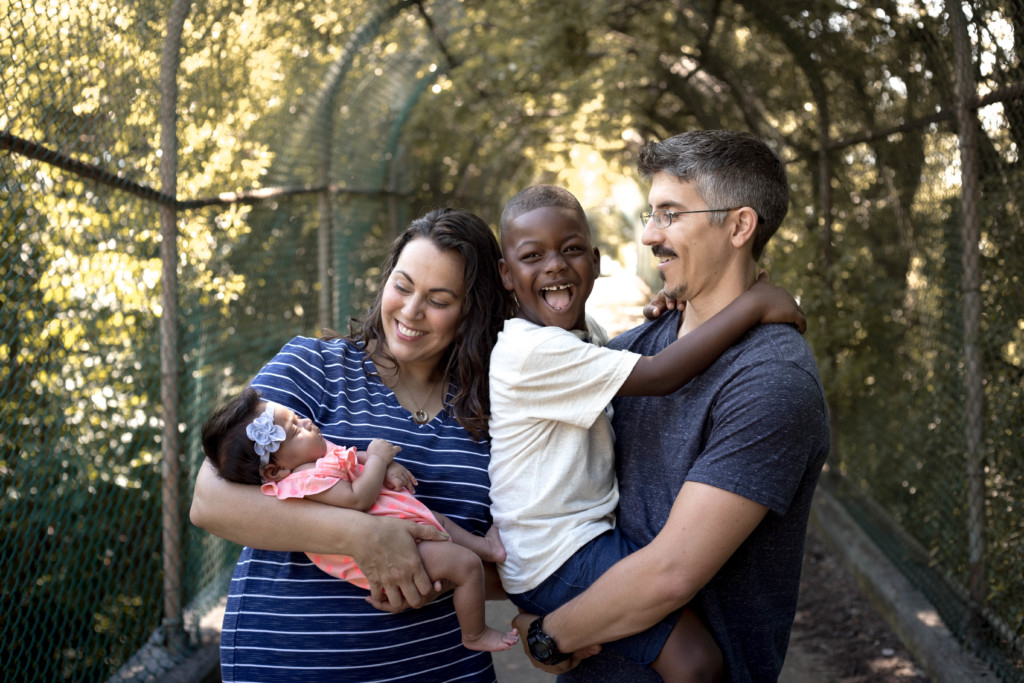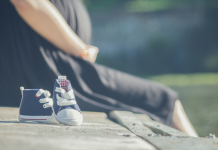I have two incredible children through adoption. I could not love them more even if I had given birth to them. In fact, I am jealous of those nine months of their lives that I wasn’t holding them. (They are amazing and I’m greedy.) They are unequivocally mine — regardless of biology.
Our family is multiracial. I am white and hispanic, my husband is white, my son is black, and my daughter is black and hispanic. The racial and ethnic makeup of our family can—and does—attract questions from the general public.
Mostly, I happily embrace the Educator status that adoption has brought me. But some days? It can be challenging. Occasionally, it’s hurtful. I know adoptive families are not alone in receiving these kinds of intrusions. Friends with large biological families report facing parking-lot inquisitions regarding the size of their families.
Today I’m sharing what I hope might be some helpful tips that I use in daily conversations. I’m excited to share a great Acronym from the Center for Adoption Support and Education (CASE).
W.I.S.E. Up!
W – Walk Away—or Ignore what is Said or Heard
Before even considering the question being asked, first consider the source. If someone asks about my fertility status: Would I even share my address with this person? If they make assumptions about our birth families: Where do they fall between “inner circle” and “never to be seen again”? Telemarketer (or the like) who calls during dinner or my favorite show? Ain’t nobody got time for that. So I might need to ignore the question/comment.
Sometimes this means I give a blank stare, and we keep it moving down the aisles of WalMart. I strive to exit gracefully—even when I could be offended. Thankfully, small children prove a convenient excuse for an early exit. I want my kids to see, however, that they can always just walk away.
I – It’s Private—and I Don’t Have to Answer It
Our adoption story is more visually available. So sometimes people assume that the details are available as well. I want to make sure that I uphold the dignity of my children’s story even if/when the questioner does not. I may try a quick redirect question or comment. (Afterall, people often love to talk about themselves, right?) Sometimes, however, this needs a more direct approach—especially if they are persistent. Shutting down inappropriate personal questions? That’s OK. Try: “We don’t share family business with strangers.” Or, “That’s family business—but we can talk about religion, sex, or politics if you want!” It’s important that I model different ways for my children to enforce this boundary. Because someday, people may direct these questions at them.
S – Share Something About Our Adoption Story
Before the arrival of our son, we decided there were specific things regarding his personal history that we would not share with others. Until he reaches an appropriate age to decide for himself, the private and public details of his story belongs to him.
It’s one thing to ask personal questions about my fertility status. Asking about the private details of his adoption story? Another thing entirely. Either way, my husband and I found it helpful to talk through our personal boundaries beforehand. As a result, I am more confident in my response when randomly asked for personal information. I already know what and with whom I am comfortable sharing. I easily transition from, “We don’t share his personal information” to “but I’d love to share why we chose adoption.” This is also a great way to ask about adoption! Try, “I’d love to hear more about your family’s adoption story.” Or “How did you choose adoption?” That leaves things open-ended for the family to share at their own level of comfort.
E – Educate Others about Adoption in General
When someone talks to me about my family, we probably both receive the opportunity to learn something. People often ask whether or not I can “have a child of my own.” I can choose to get annoyed by the assumptions—or—I can show my children how thankful I am that we chose adoption to grow our family.
I can choose to gently educate and teach positive adoption language or even a better way to phrase the original question/comment. (I try rephrasing the question before I answer: Am I able to have biological children? Yes, but we chose adoption.) And every time I’m asked some version of this particular question? I learn about where I am or am not placing my identity. It reminds me how I am demonstrating that for my children as well.
Biological does not equal better. Our family lacks biological connection—but not love. My kids are my own. I am the real mom. The “lucky” one? That’s me. Not them. I can’t control what someone else initially says about my family. But my attitude and response to those impromptu comments and questions says as much to my children as any sit-down talk about adoption.
I hope you find this guideline to be helpful in how to discuss adoption.
Are you an adoptive family? What tips would you add?
 Tiffany and her husband Will moved to Nashville in 2007. They are the co-founders of a non-profit called Corner To Corner that exists to love and serve the McFerrin Park community of East Nashville. They have two beautiful children through adoption—Raylan (4) and Penelope (7 months).
Tiffany and her husband Will moved to Nashville in 2007. They are the co-founders of a non-profit called Corner To Corner that exists to love and serve the McFerrin Park community of East Nashville. They have two beautiful children through adoption—Raylan (4) and Penelope (7 months).
















http://adoptionsupport.org/
That is the website for The Center for Adoption Support and Education (CASE)